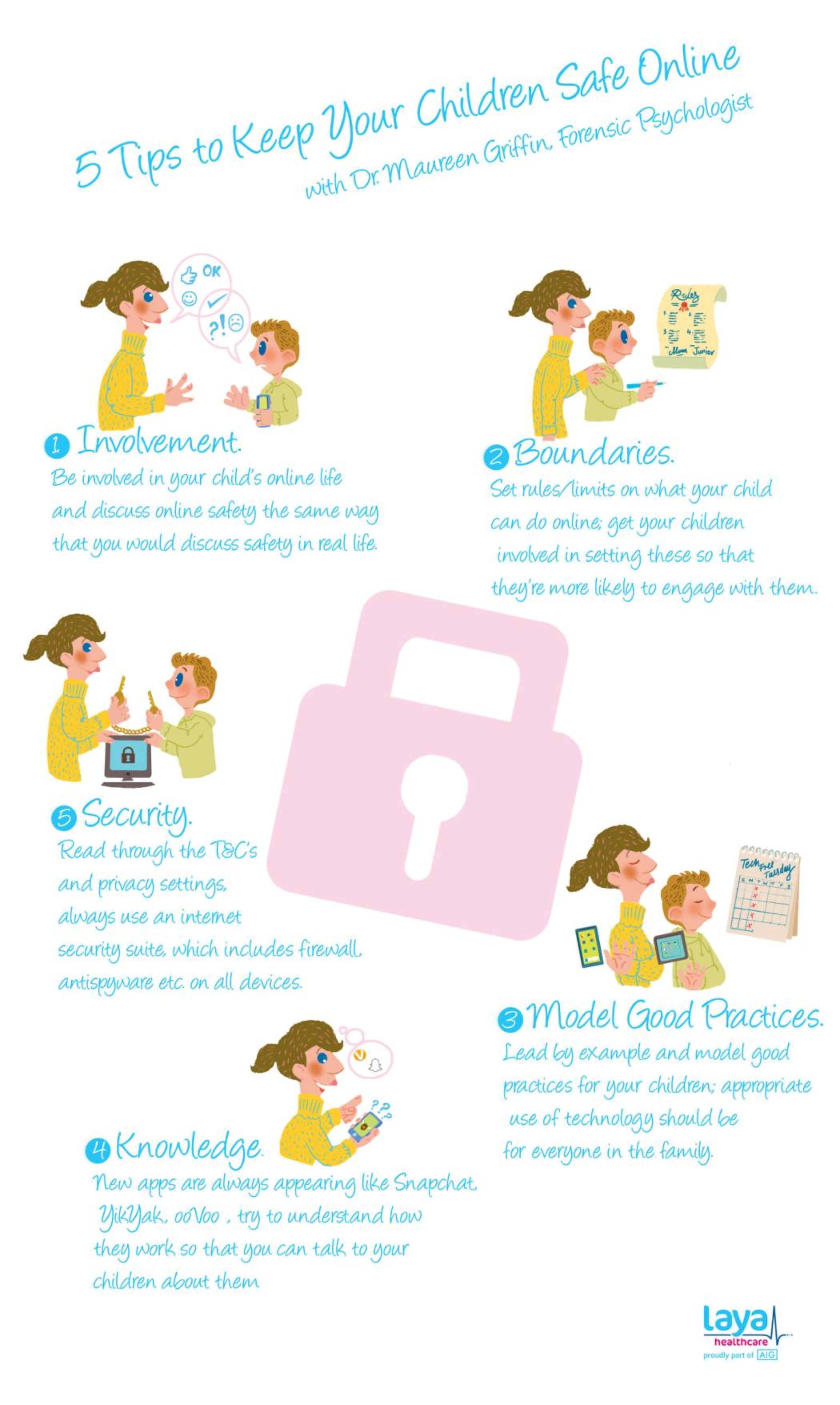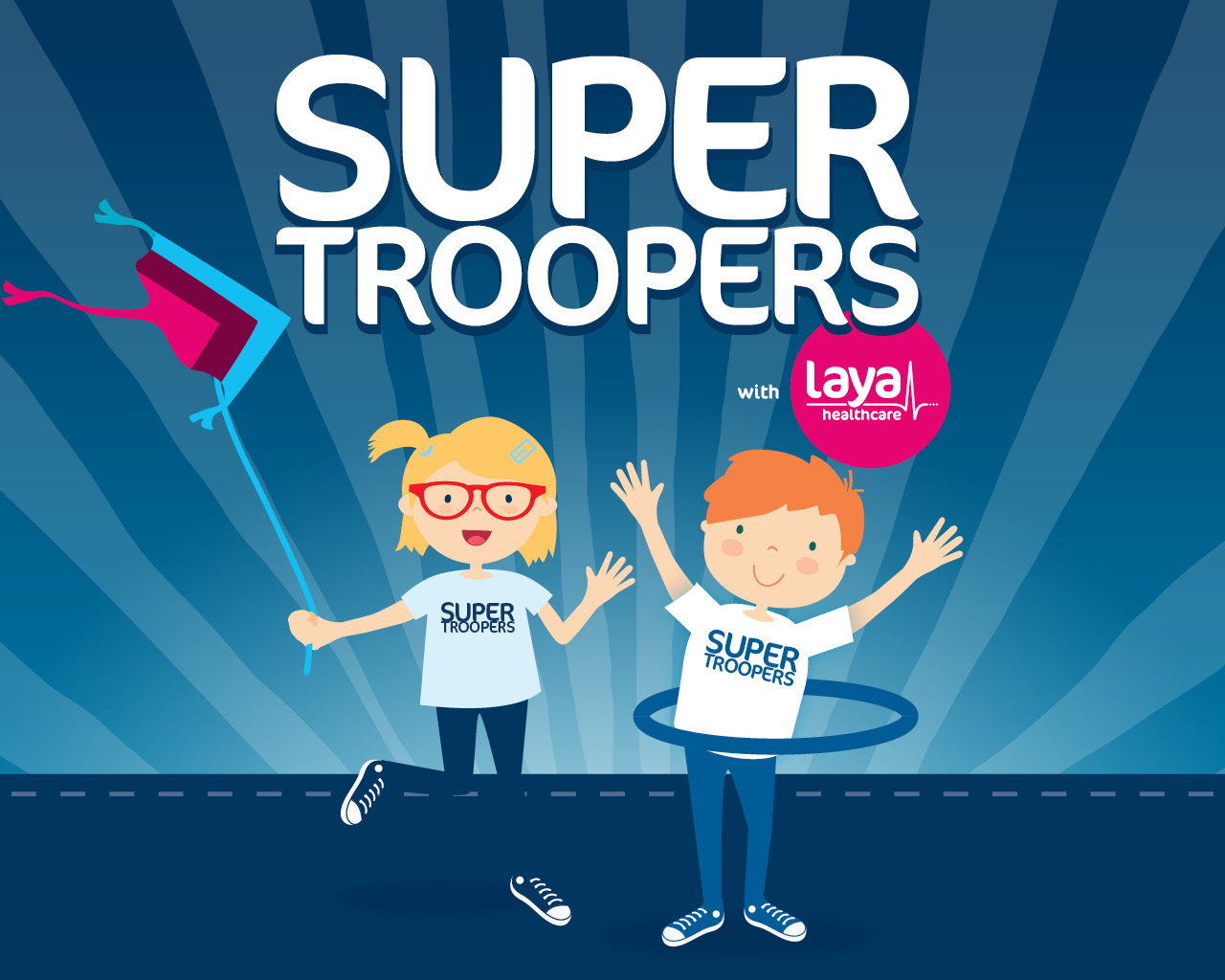Here are five main tips to keep your kids safe online
1. Involvement. Be involved in your child’s online life. Discuss safety online the same way as you would discuss safety in real life. Watch for changes in your child’s general mood and behavior when online; a change may indicate that something is happening in their online life (e.g. bullying, harassment, intimidation, access to age inappropriate content). Make sure your child knows that they can come to you if anything happens online that upsets them/scares them/worries them.
2. Boundaries. Set rules/limits on what your child can do online/when they can use technology etc. For instance, ‘no technology in the bedroom at night-time’, ‘no devices at the dinner table’. Simple rules like this teach children that technology has a place within our lives and does not, or should not, rule our lives. Keep control of the modem. Check with your provider, you may be able to put time limits on for certain devices; so there is no more ‘5 more minutes’ it just times out/turns off. Some families I have spoken to are opting for a technology free day in the week –‘Tech Free Tuesday’ or ‘Tech Free Thursday’ –for all members of the family. Setting out a ‘device contract or agreement’ is also handy for younger children, be it for a phone, iPad, iPod, Xbox, PlayStation etc. In this contract you can outline what you expect from your child, what they can expect from you (e.g. it's your right to spot check/know passwords) and any sanctions you want to put in place. You can also use this contracprepare your child for situations they may find themselves in online (e.g. what to do if they get a message from someone they do not know). Having the child involved in making the rules means they are more likely to comply.

3. Model Good Practices. It is all well and good to advise our children about safe and appropriate use of technology and social media but if we do not practice what we preach, our advice is often ignored. It should not be a case of “Do as I say, not as I do” when it comes to social media and technology use. It is important that we, as parents, lead by example and model good practices for our children; manners online and appropriate use of technology should be for everyone in the family.
4. Knowledge. There is always a certain degree of worry when a new App appears –Snapchat, YikYak, ooVoo –and how it could be used to bully/harasses/groom etc. Parents can stay up to speed with new apps and sites by checking out sites like Common Sense Media which offers reviews of new sites/apps/games etc. Parents should have the password for all App downloads, so that you can check out the App before installing it on your child’s device. Be mindful that some children are hiding their Apps in folders on their home screen so that parents won’t immediately see the icon! Also watch for multiple accounts, often set up to avoid parental monitoring. Some parents are very active online, speak to them, get them to show you the ropes. Know your child’s online friends and followers. Ask questions about them, just as you would ask questions about their friends in real life. This might seem daunting when they have hundreds if not thousands of friends or followers online. The reality is that they possibly only talk to/check up on twenty or thirty of these. So know these ones; they are the ones that can have an influence on your child, be it positive or negative.
5. Security. Use an internet security suite, which includes firewall, antispyware etc. on all devices. For younger children (national school level), our focus should be on ‘avoiding online risks’, so enable parental controls and filtering on devices they are using. Know their account details for sites/Apps they are using. As our children get older (secondary school level) our focus shifts to ‘managing online risks’, so go through their security and privacy settings with them, show them how to block/report etc. Advise your child not to share passwords for their devices/accounts, even with their best friends. Children, like adults, often just tick the box when setting up an account, failing to read the T&C’s. Explain the T&C’s for the sites/Apps they are using (e.g. how long their data will be stored, who it is shared with). They will thank you for it, even if they tell you they already know!
Access to Parenting Experts
Did you know that all laya healthcare members have access to online appointments with parenting experts, at no additional cost, in the months of April, May and June 2020?
Book your session with a parenting expert here
Looking after you always.
Social media, how to stay safe







